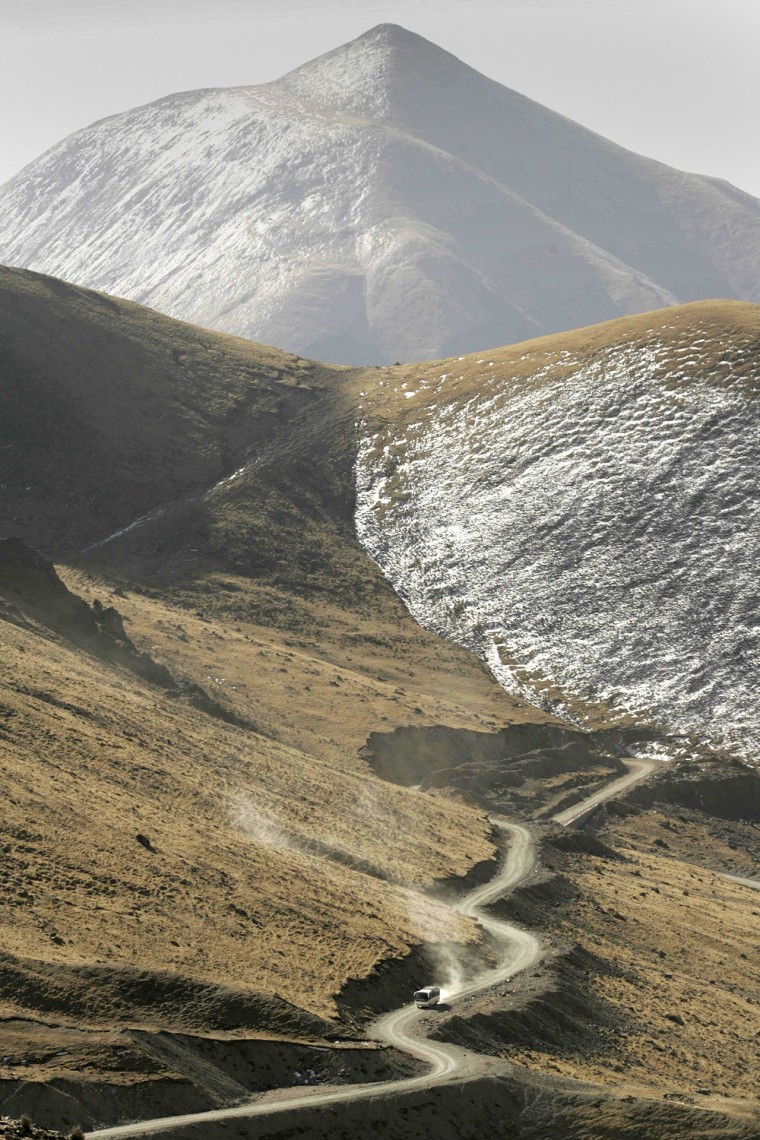In the hot, dusty interior of Guanacaste Province, in western Costa Rica, the Interamerican Highway winds through scenery that wouldn’t be out of place in Montana or Colorado. Beyond the shoulder, scattered cattle graze on grassy rangeland that stretches to distant peaks hidden in the clouds.
Then again, in the U.S., truck stops and other checkpoints tend to be located off the highway. Here, where trucks, buses and the occasional ox cart all share the same road, traffic grinds to a halt on a regular basis. Usually, you have no clue as to why until you inch forward, reach the front of the line and get waved on by a policeman directing traffic around an accident or mid-road inspection.
Unless, that is, the policeman sticks out his arm, points his finger at you and directs you to the side of the road.
Risky roads, scary statistics
I was reminded of that encounter by recent news reports highlighting the hazards of foreign roads. According to , a traffic-safety advocacy group based in London and Washington, D.C., traffic accidents are the leading cause of death for healthy Americans when traveling abroad: Excluding those who died from pre-existing health conditions, road crashes kill nearly one-third (31 percent) of the more than 2,300 Americans who die each year in foreign countries.
(As the Make Roads Safe campaign points out, this is part of a much larger problem. In 2004, the World Health Organization estimated that 1.2 million people are killed worldwide in road crashes each year, and as many as 50 million are injured. Those numbers are expected to increase by 65 percent over the next 20 years.)
Clearly, hitting the road in foreign countries can be hazardous to your health. And recent tragedies — a bus crash in Malaysia that killed at least 20, a bridge collapse in China that killed more than 30 — are hardly reassuring. Whether you hop a bus, hire a driver or rent a car and drive yourself, the combination of bad roads, lax safety standards and unfamiliar surroundings can exact a terrible toll.
But should that stop you from getting on a bus or behind the wheel when you’re out of the country? Hardly. Foreign roads can be confusing, challenging and occasionally scary, but there’s no better way to get a sense of your surroundings. Keep your eyes on the road and you may also get a glimpse of how far you’ve come.
Señor Toad’s wild ride
For budget travelers, the Mexican bus system is a godsend of diverse routes, frequent departures and multiple service levels that range from reasonable to rock-bottom. Travel at night, as my friend Tom and I did back in the ‘80s, and you don’t even have to pay for hotel rooms.
Instead, we spent our nights barreling along pitch-black highways in buses that were old when Kennedy was president. Mufflers, shocks, working windows? Those, we figured, were for wimps and wealthier travelers. We were traveling like (and with) the locals, choosing real life and genuine adventure over air conditioning and onboard bathrooms.
And the rides were certainly memorable. The small, sleepy towns. The night sky and the jungle-scented wind. The sudden flash of headlights as our driver hit the gas, jerked the wheel and swerved between a slower vehicle and oncoming traffic. Years later, I can still remember stumbling off a bus and into a deserted station beneath a sign that read Sala de Espera. I’m sure the appropriate translation was “waiting room,” but “room of hope” seemed strangely appropriate.
White knuckles and a hearty handshake
In the years since, I’ve graduated from chicken buses to business trips and family vacations. I’ve held on for dear life as business associates rocketed through city squares and roundabouts, and I’ve forced my family to do the same as we white-knuckled our way along mountain roads with hairpin turns, no shoulders and few, if any, guardrails. I’ve probably forgotten half the places I’ve been (not to mention most of the meetings I attended), but I always remember the drive.
I imagine it will be the same with Costa Rica, where we rented a car and spent a week running a gauntlet of twisting roads, frame-shaking potholes and drivers who apparently thought nothing of passing on blind corners. Fortunately, we never had any problems, although we did have some surprising encounters.
Like when that officer on the Interamerican Highway motioned us to the side of the road. I immediately assumed the worst — a trumped-up infraction, a ticket and a fine he might let us pay on the spot — so I was a bit confused when he idly asked us where we were from and where we were going. Apparently satisfied, he reached into the car, offered his hand in greeting and said, “Thank you for coming to Costa Rica. I hope you enjoy your stay in my country.”
The pleasure was all ours.
